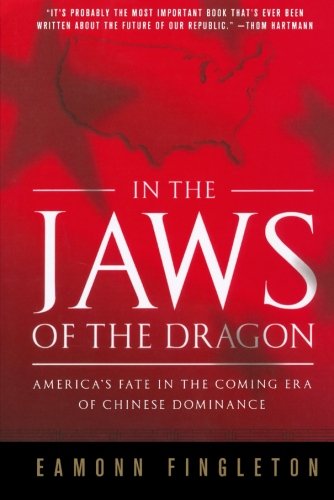◄►◄❌►▲ ▼▲▼ • BNext New CommentNext New ReplyRead More
CONVENTIONAL WISDOM has it that Silicon Valley is triumphantly leading the United States toward ever greater prosperity as the American economy shifts out of manufacturing into new information-based businesses.
So far the euphoria about the New Economy has come in for remarkably little reality checking — but there are reasons to believe that the economic promise of America’s new information-based businesses has been greatly exaggerated. Evidence is mounting that the United States has been too hasty in allowing its advanced manufacturing industries to fade away. This applies in spades to the American electronic hardware industry, which has become almost entirely hollowed out thanks to the trend for major corporations in Silicon Valley and elsewhere to out-source components, subassemblies and even entire products from East Asia.
One problem with America’s embrace of the Information Economy is that it creates an unbalanced mix of jobs — a surfeit of jobs for a few highly intelligent workers and virtually no jobs for anyone else. The postindustrial trend is also associated with a pattern of slow income growth in the United States in recent decades.
At last count the United States was bested in per-capita income by no less than six manufacturing-oriented nations — Switzerland, Germany, Japan, Denmark, Austria and Sweden.
The Information Economy has clearly accelerated the deterioration in America’s troubled balance of payments. Information-based businesses are notably weak exporters. Typically, they do only about one-tenth as much exporting as the manufacturing industries that the United States has been abandoning.
The reason for the poor export performance of information-based companies is no fault of the companies themselves. But it is still a fact of life that American policy-makers must confront. One reason for the poor exports is piracy, which is generally a far bigger problem in export markets than at home. Foreign governments just don’t care that much about making sure American information businesses get paid for their products.
Another reason for the Information Economy’s poor export performance is that information-based products are culture-specific. Thus they are more or less unsaleable in foreign markets. Most American information-based companies do not find it worthwhile to do the necessary adaptations. Even in the minority of cases where companies invest in such adaptation, the benefit to the American balance of payments is generally disappointing. Such adaptation is generally carried out outside the United States and the heavy costs incurred cut deeply into the net revenues remitted to the United States.
Thus, although American software companies see themselves as globe-girdling giants, they derive little of their revenues from abroad, typically well under 10 percent. Even mighty Microsoft, blessed as it is with a global lock on personal computer operating system software, is a disappointing player in world markets. Its exports totaled only $2.9 billion in 1998, just 20 percent of its total sales of $14.5 billion. By comparison, traditional manufacturing powerhouses such as Boeing derive close to 50 percent of their revenues from exports. And in the electronic components industry, which is increasingly dominated by Asian companies, export ratios are even higher. It is estimated, that more than 70 percent of the entire output of the Japanese liquid crystal display industry is exported.
New Age prophets have swept the trade implications of the Information Economy under the carpet — but signs are that the truth will soon be out. Already, as the trade figures for June have indicated, America’s trade deficits are threatening to spiral out of control. At $24.6 billion, the June deficit was the worst ever recorded. It represented an increase of 78 percent over last year. And it means that the cumulative deficits for the first half of 1999 came to $118.1 billion — an increase of more than 49 percent on the record total of $78.8 billion in the first half of 1998.
The result is that Wall Street analysts are talking about a deficit approaching more than $250 billion for 1999, versus last year’s record of $168.6 billion. If the trade position continues to deteriorate, the United States is headed for a major dollar crisis — and for a major review of the efficacy of the Information Economy.
Eamonn Fingleton is the Tokyo-based author of “In Praise of Hard Industries: Why Manufacturing, Not the Information Economy, Is the Key to Future Prosperity” (Houghton Mifflin, 1999

 RSS
RSS









